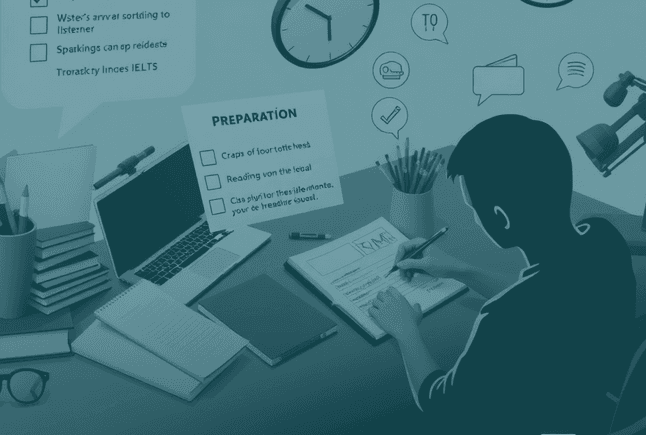Thinking about taking the IELTS exam? Whether you’re applying for university, immigration, or your dream job abroad, preparing for IELTS the right way can be the difference between a good score and a great one. In this guide, we’re breaking down what works, what to avoid, and how to plan your study time without burning out.
Why Preparation Really Matters
Let’s be honest—just knowing English isn’t enough. IELTS tests how well you can perform under pressure: reading dense texts, writing clearly, speaking confidently, and listening carefully. That’s why smart preparation is your best friend.
Step-by-Step Plan to Prepare for IELTS
1. Learn the Test Format
First things first, you need to understand the structure of the test. IELTS has four sections—Listening, Reading, Writing, and Speaking. Each section has its quirks, so get familiar with question types and timing early on.
2. Check Where You Stand
Take a free practice test. No pressure, no timer (for now). Just see what you’re dealing with. This will show you where you shine—and where you need to focus.
3. Create a Weekly Study Plan
Once you know your strengths and weaknesses, you can set up a smart, realistic study plan. Here’s a sample 4-week plan if you’re aiming for a 7+ band score:
| Week | Focus |
|---|---|
| 1 | Learn the test format + Listening & Reading practice |
| 2 | Start Writing tasks + build vocabulary |
| 3 | Focus on Speaking + time management skills |
| 4 | Full mock tests + review and polish |
4. Practice with Real Test Conditions
Put yourself in test-mode regularly. No distractions, use a timer, and simulate real exam conditions. You’ll build stamina, confidence, and reduce anxiety.
5. Learn to Manage Your Time
Even strong English speakers lose marks just because they run out of time. Learn tricks like skimming for keywords, outlining essays before writing, and pacing yourself on the listening track.

Common Mistakes to Avoid
- Memorizing full answers: The test checks your flexibility. Use natural responses, not rehearsed ones.
- Skipping Speaking practice: Talk to yourself, record your answers, or find a language partner.
- Not reviewing mistakes: Analyze what went wrong and try again. That’s where progress happens.
- Ignoring vocabulary variety: Use synonyms and advanced phrases to show your range.
Helpful Resources to Try
Some free and paid tools to supercharge your prep:
- Cambridge IELTS books (1 to 18)
- Official IELTS sample tests
- IELTS Online Apps like Langogh, Prep by British Council
- Try our own AI-based practice platform for instant scoring and feedback 🚀
Final Thoughts
Preparing for IELTS doesn’t have to be overwhelming. With a clear plan, the right tools, and regular practice, you’ll be more than ready for test day. Remember: it’s not just about what you know, but how you use your time and stay calm under pressure.
Want to know where you stand? Try our free mock test and get a personalized performance report.



